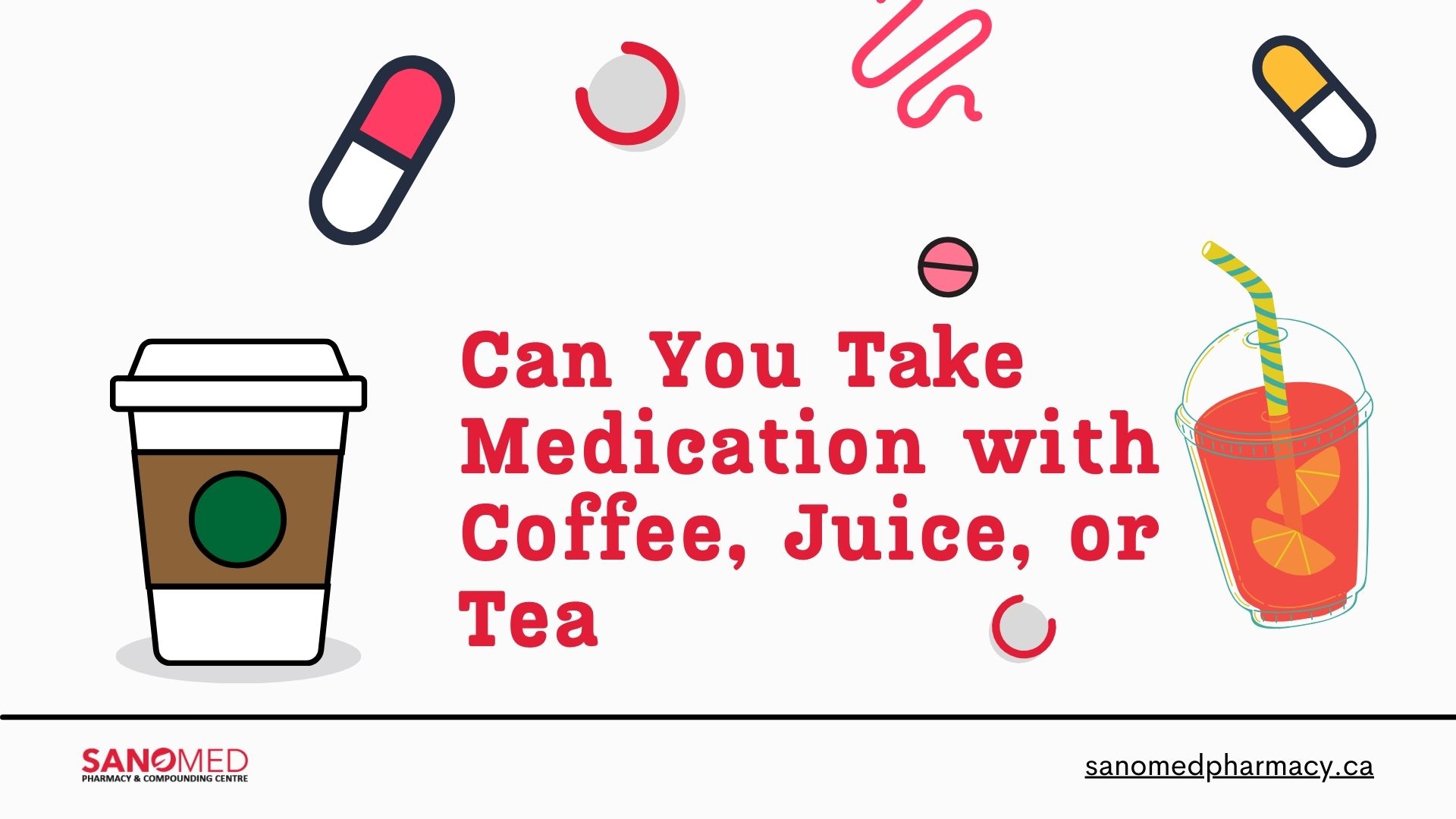Many people take their daily medications with whatever beverage is on hand – whether it’s a morning coffee, fresh juice, or a cup of tea. But did you know that the drink you choose can actually affect how well your medication works? Certain beverages can reduce effectiveness, delay absorption, or even cause unwanted side effects. Let’s break down what you should know before you wash down your pills with anything other than water.
Coffee & Medications: A Problematic Pairing?
That morning coffee might be non-negotiable, but it doesn’t always mix well with medication. Caffeine is a stimulant that can interact with certain drugs, causing unexpected effects.
Common Issues with Coffee & Medications:
- Reduces absorption of some medications – Coffee lowers stomach acid, which can interfere with how well drugs are absorbed. This is a concern for medications like thyroid hormones (levothyroxine) and osteoporosis drugs (alendronate).
- Speeds up metabolism of certain drugs – Some medications, like antidepressants (fluvoxamine, amitriptyline) and certain blood pressure medications (propranolol), are metabolized faster when taken with caffeine, making them less effective.
- Increases side effects – Coffee can amplify stimulant effects of some drugs, leading to increased heart rate, jitteriness, or insomnia. This is especially true for asthma medications (theophylline) and decongestants (pseudoephedrine).
- Iron absorption issues – Coffee can inhibit iron absorption, so if you’re taking an iron supplement, wait at least one hour before or after drinking coffee.
Best practice: If you take medication in the morning, wait 30-60 minutes after coffee before taking your pills to avoid interactions.
Juice & Medications: A Hidden Risk
Juices may seem like a harmless choice, but some can significantly alter drug absorption and increase or decrease medication effects.
Grapefruit Juice: The Worst Offender
Grapefruit juice is notorious for interfering with drug metabolism. It blocks an enzyme (CYP3A4) in the liver that helps break down certain medications, leading to higher drug levels in the bloodstream. This can make medications more potent, increasing the risk of side effects.
Medications that interact with grapefruit juice:
- Cholesterol medications (Statins) – Simvastatin, atorvastatin, lovastatin
- Blood pressure drugs – Nifedipine, felodipine
- Anti-anxiety medications – Diazepam, midazolam
- Organ transplant drugs – Tacrolimus, cyclosporine
- Some allergy meds – Fexofenadine (Allegra)
Even one glass of grapefruit juice can alter drug levels for up to 24 hours!
Other Juices to Watch Out For
- Cranberry juice – May increase the effects of blood thinners (warfarin), leading to an increased risk of bleeding.
- Orange juice – Can reduce absorption of certain allergy medications like fexofenadine (Allegra).
- Apple juice – Can interfere with the absorption of some antibiotics like ciprofloxacin and levofloxacin.
Best practice: If your medication interacts with juice, stick to water and wait at least 4 hours before or after drinking juice.
Tea & Medications: A Surprisingly Complex Interaction
Tea, especially herbal tea, might seem like a safe choice, but some varieties contain compounds that interfere with medications.
Caffeinated Tea (Black, Green, White Tea)
Like coffee, caffeinated teas can affect drug metabolism, increasing or decreasing effectiveness. Green tea, in particular, contains catechins, which may lower the effectiveness of certain medications.
Interactions to watch for:
- Green tea + blood thinners (Warfarin) – Green tea contains vitamin K, which can reduce the effectiveness of warfarin and increase the risk of blood clots.
- Black tea + iron supplements – Tannins in black tea reduce iron absorption by binding to the iron.
- Tea + sedatives – Combining caffeine-containing teas with sleeping pills or sedatives can reduce their calming effects.
Herbal Teas: Not Always Safe
- Chamomile & Valerian tea – Can enhance the effects of sedatives, leading to excessive drowsiness.
- Peppermint tea – May interfere with acid reflux medications like omeprazole.
- Licorice root tea – Can raise blood pressure and interfere with corticosteroids.
Best practice: Always check if your tea contains herbs that could interact with your medication. If unsure, stick with water.
So, What’s the Best Drink for Taking Medication?
Water wins – every time.
Water is the only universally safe liquid to take with medications. It ensures that your pills dissolve properly and don’t interact with any compounds in your drink.
Key Takeaways:
Take medications with a full glass of water unless otherwise directed.
Avoid coffee if you take iron, thyroid meds, or antidepressants.
Skip grapefruit juice if you’re on cholesterol, blood pressure, or anxiety meds.
Watch out for tea interactions with blood thinners, sedatives, and iron supplements.
Wait at least 4 hours before or after drinking juice if taking affected medications.
Next time you reach for your medication, think twice before washing it down with anything other than water – your body (and your pharmacist) will thank you!

